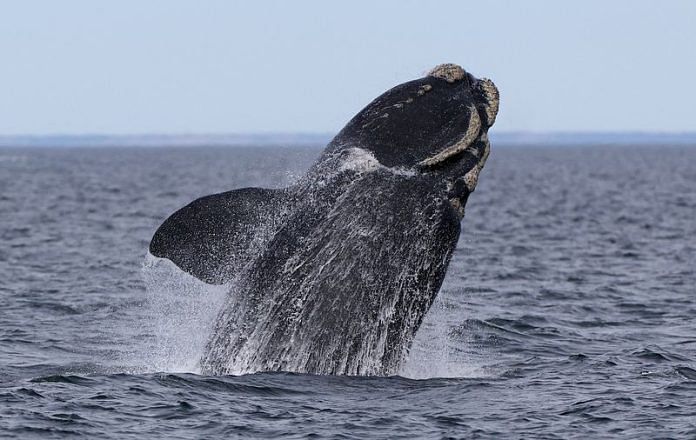By Miguel Lo Bianco
PUERTO MADRYN, Argentina (Reuters) – In the icy seas off Argentina’s southern Patagonian coast, an important breeding ground for whales, scientists are studying the huge marine mammals to better understand how they mate, feed and look after their young.
They have learned some surprising facts. Southern right whales in the Valdes Peninsula unexpectedly dive to the ocean floor to feed, often along with their young calves, researchers told Reuters near the Patagonian port city of Puerto Madryn.
“We went to examine the surface and sub-surface feeding behavior, and what we saw was many whales were diving, and when they returned to the surface they had mud on their heads,” said Valeria D’Agostino, a researcher at state science body CONICET.
“That gave us evidence the whales were diving close to the bottom,” added D’Agostino, lead author of a study published in the journal Scientific Reports in June.
The study documented that these filter-feeding whales find larger specimens of zooplankton near the seabed than at the surface.
The researchers placed cameras on the backs of eight whales after making the observation and found out something even more unusual. The calves also dove to the bottom, something scientists had not known they were capable of doing.
“Another interesting thing that was unknown to us, and that we were able to discover from this study, is that the calves of whales also dive to more than 100 meters (330 feet) deep when they accompany their mothers,” D’Agostino said.
According to the latest census from September, there are 1,468 whales in Peninsula Valdes, a breeding and reproduction area considered a UNESCO World Heritage Site. It is one of the most important tourist sites in Argentina.
For D’Agostino, the study’s findings are key to ensuring that marine areas remain protected, guaranteeing the conservation not only of mammals like whales but also of every part of the ecosystem to ensure the availability of prey.
“Whales come to Peninsula Valdes to reproduce and give birth to their young, and also in order to feed,” D’Agostino said.
(Reporting by Miguel Lo Bianco; Writing by Lucila Sigal; Editing by Adam Jourdan and Will Dunham)
Disclaimer: This report is auto generated from the Reuters news service. ThePrint holds no responsibilty for its content.






